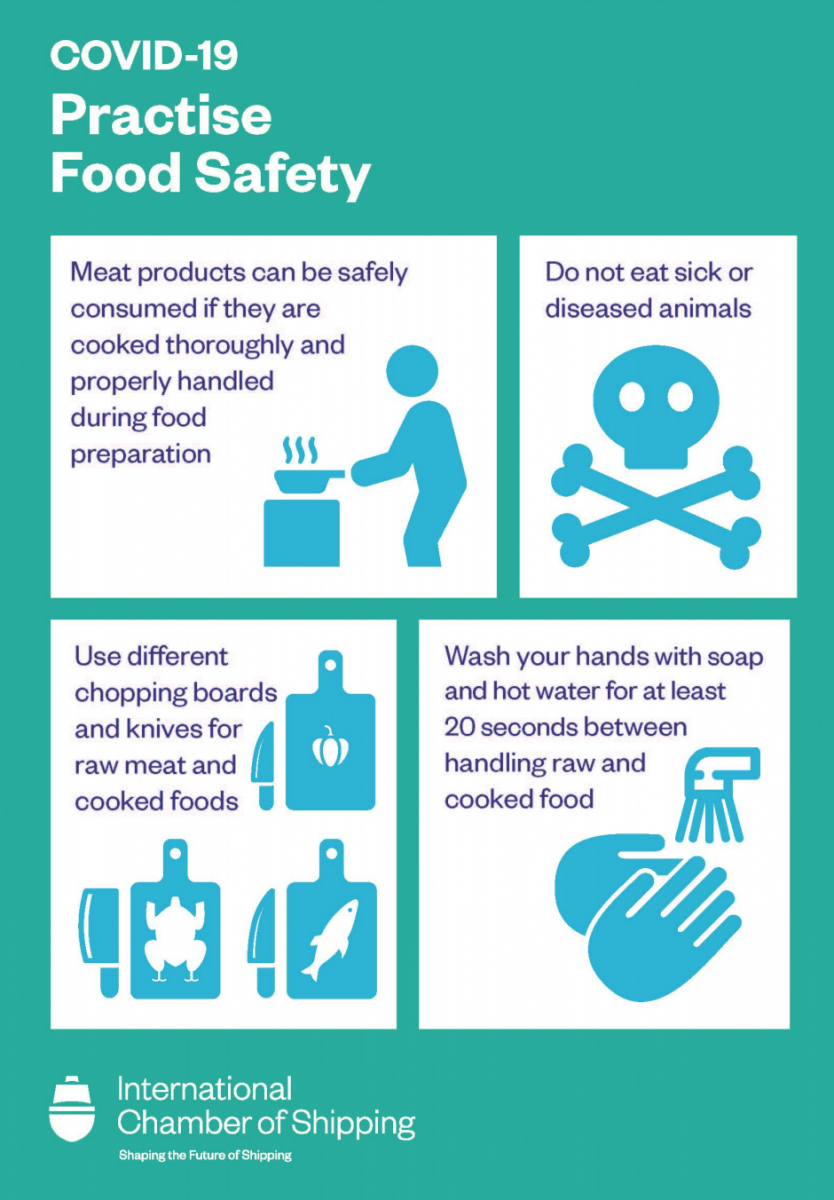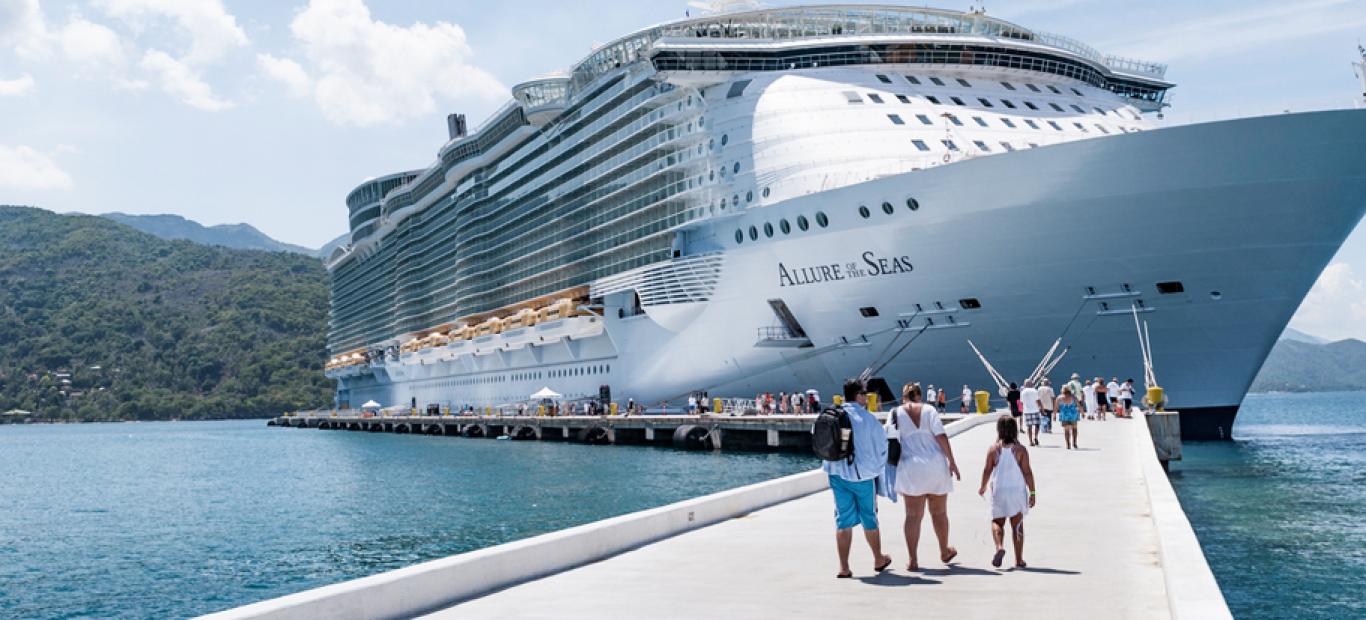Impact of COVID-19 to the Sailing Industry
.jpg)
Sumber : https://pixabay.com
Since the Chinese authorities confirmed that they had identified a new virus named novel coronavirus (2019-nCoV) on January 7th 2020. Until March 11th 2020, WHO declared COVID-19 (Novel corona disease) a pandemic, for what happened at this time we should be aware of the spread and impact of the corona virus. The impact of this virus is very large, not only on health, but also on financial and social impacts as a whole.
Quoted from McKinsey's data, in an analysis of 186 countries, it was found that China was the largest export destination for 33 countries and the largest source of imports for 65 countries, with a share of world commodity trade of 11.4% in 2017. Then with these conditions, the existence of COVID- 19 in China has had a profound impact on the course of the world trade chain itself.
World trade, as it is known that most of its commodities are transported by sea transportation, is managed by shipping companies. Based on data from the International Chamber of shipping, the Shipping Industry is responsible for the transportation of commodities for about 90% of total world trade. Thus, the emergence of COVID-19 has had an impact on the Shipping Industry today. Examined further, the impact of COVID-19 will not only affect the Shipping Industry, but will also affect our business (insurance).
COVID-19 has resulted in reduced transport volume and sub-optimal ship utilization. Quoted from ship-technology, currently shipping companies have cancelled 21 shipping routes for the US - Asia Pacific trade due to the low demand for commodity transportation in China. The cancellations are in addition to the 66 cancellations that have occurred during the 2019 Chinese New Year. As for the Asia - Europe trade route, there were 61 cancelled shipments, resulting in a reduction in capacity of 151,000 TEU.
Several large shipping companies have been hit hard by the emergence of COVID-19, such as Maersk and Hapag Lloyd. Maersk accounts for around 30% of its annual shipment volume from operations in China and Hapag Lloyd about 25% of group revenue is contributed from operations in China. Both Maersk and Hapag Lloyd are in danger of losing the business.
IMO (International Maritime Organization), which is the institution responsible for the security and safety of international shipping, has endorsed several circular letters in response to COVID-19, as follows:
- Circular Letter No.4204/Add.5 (17 March 2020) Coronavirus (COVID-19) – Guidance relating to the certification of seafarers
- Circular Letter No.4204/Add.4 (5 March 2020) - ICS Coronavirus (COVID-19) Guidance for ship operators for the protection of the health of seafarers
- Circular Letter No.4204/Add.3 (2 March 2020) - Operational considerations for managing COVID-19 cases/outbreak on board ships.
- Circular Letter No.4204/Add.2 (21 February 2020)- Joint Statement IMO-WHO on the Response to the COVID-19 Outbreak
- Circular Letter No.4204/Add.1 (19 February 2020) - Implementation and enforcement of relevant IMO instruments.
- Circular Letter No.4203.Add.1 (12 February 2020) - Novel Coronavirus (2019-nCoV), providing information and guidance, based on recommendations developed by WHO and DHMOSH, United Nations on preventive measures to minimize the corona virus for delegates attending meetings at IMO.
- Circular Letter No.4204 (31 January 2020) - Novel Coronavirus (2019-nCoV), providing information and guidance, based on recommendations developed by WHO, on preventive measures to minimize the coronavirus for crew, passengers and people on board.


Source: IMO- Circular Letter No.4204/Add.4 Source: IMO- Circular LetterNo.4204/Add.4
.png)
Source: IMO- Circular Letter No.4204/Add.4
So far, IMO has taken steps to prevent the spread of the corona virus. Campaigns related to coronavirus prevention measures are still considered the right step. This is done so that the world's ports and shipping can continue to operate. Imagine if the port was completely closed, how big the impact of the loss would be. This step will still be updated according to the conditions that occur later.
Several countries have implemented port restrictions to reduce the spread of COVID-19, such as China, Japan, the United States, Singapore, Australia, Turkey etc. quoted from Ship-technology. In Singapore, the Maritime and Port Authority of Singapore (MPA) conducts temperature screening at all Singapore sea checkpoints including ferry and cruise terminals, as well as entrants who have a travel history from Hubei or have a PRC (People's Republic of China) passport which is validated in Hubei, is prohibited to enter and even to transit in Singapore. Turkey has taken steps to contain the spread of COVID-19 by restricting cruise ships from Chinese ports from docking in the country. Cargo ships have been allowed to dock but are subject to stringent checks. Turkey has stationed 33 health screening centers in various ports for screening. In fact, all major ports in the world have implemented a 14-day quarantine period for ships arriving from or transiting through China. Ships arriving from China are required to declare the health of their crew and passengers before docking.
Restrictions on these ports are an effort to prevent the corona virus, as a result this affects the global commodity transport chain (export - import). The export-import business in Indonesia is no exception. Reporting from the Bisnis.com newspaper, the Chairperson of the Indonesia National Shipowners' Association (INSA), Carmelita Hartoto, said, "The level of ship filling for export and import activities will definitely decline. This is because Indonesia's export and import shipping is still dominated by national shipping ”. The obstruction of the chain of transport directly impacts the shipping industry. The shipping industry will have fewer orders to transport goods, increase operational costs due to screening procedures at the port of destination that extend shipping time, and of course also have to run an IMO circular.
However, if further investigated, disruption of the transportation chain will not only affect the Shipping Industry, it will also cause a domino effect that affects other industries, such as project completion due to delays in delivery of goods, manufacturing industries not operating because raw materials are not available, damaged commodities. in the middle of the road because the arrival of the ship exceeds the ETA, ship maintenance is hampered due to the decline in shipping industry income due to low shipments, etc. These domino effects also need to be watched out for.
Likewise with the insurance industry, several general insurance industry products will also be affected due to obstruction of the chain of transport of goods as a result of COVID-19, including products of Marine Cargo Insurance, Marine Hull Insurance, Engineering, Bond, etc. Although at this time it is still unknown how much impact this will have on the insurance industry. However, it is necessary to get special attention from Underwriters regarding the new risks that arise due to COVID-19. So that Underwriters are aware of the risks of the domino effect that may arise and become a special consideration when making acceptance of several affected insurance products.
Reference :
2. Cina and the world - Inside the dynamics of a changing relationship, McKinsey Global Institute, July 2019.
3. International Maritime Organization (IMO), Circular Letter No.4204 add 1 - 5
4. http://www.imo.org/en/MediaCentre/HotTopics/Pages/Coronavirus.aspx
5. https://www.ics-shipping.org/shipping-facts/shipping-and-world-trade
Author





 9158
9158



 02 Nov 2023
02 Nov 2023 8727 kali
8727 kali





